As a holistic veterinarian, I’ve spent years studying the health of various dog breeds. One breed that has always fascinated me is the Belgian Sheepdog. With their keen intelligence, agility, and striking appearance, they’re truly unique. But, like all breeds, they have their own set of health concerns, and one area that needs special attention is their eyes. Belgian Sheepdog Eye Health is a topic that every Belgian Sheepdog owner should be well-versed in.
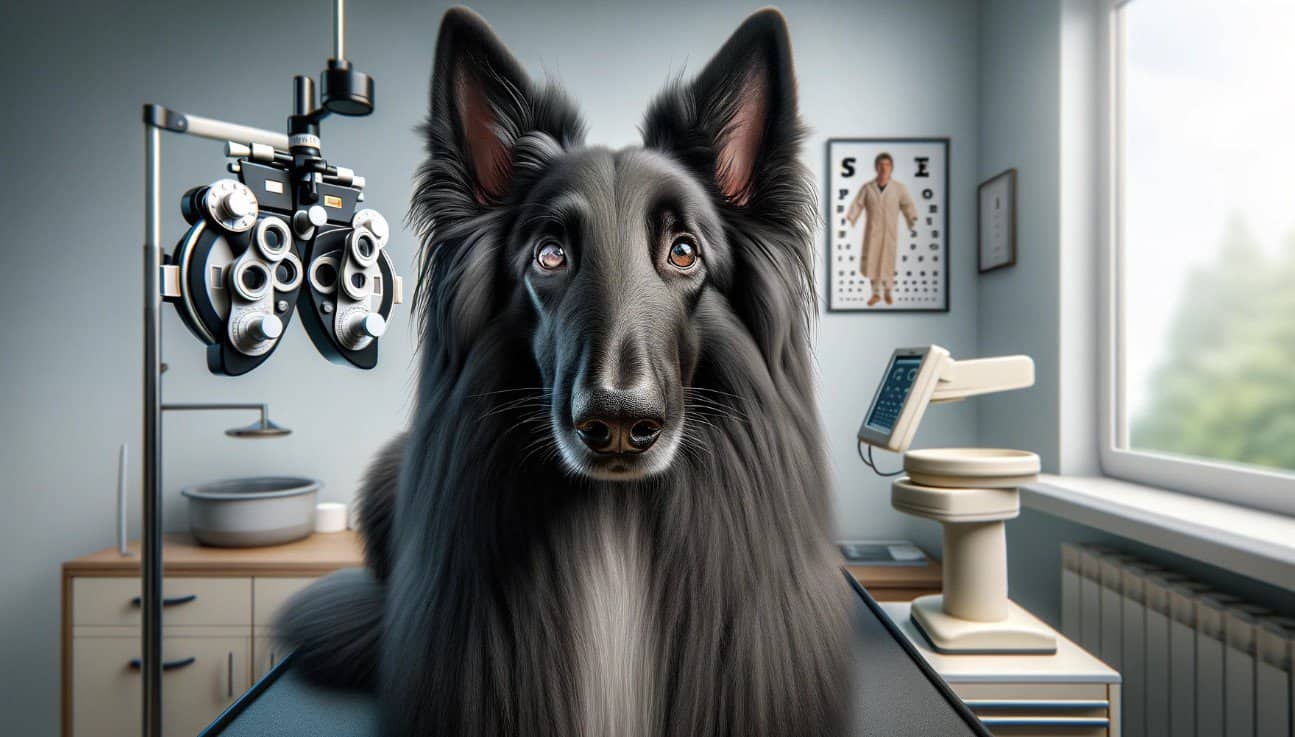
Belgian Sheepdogs are known for their expressive, almond-shaped eyes. These eyes are not just a window to their soul, but also an indicator of their overall health. It’s crucial to understand the structure of their eyes and the common eye issues they may face. From simple irritations to complex eye diseases, Belgian Sheepdogs can experience a range of eye health problems. But don’t worry, with the right care and preventive measures, many of these issues can be avoided or managed effectively.
In this article, we’ll explore the intricacies of Belgian Sheepdog Eye Health. We’ll discuss common eye problems, preventative measures, and routine care tips to help your Belgian Sheepdog maintain optimal eye health. So, whether you’re a seasoned Belgian Sheepdog owner or you’re considering adding one to your family, this guide will be a valuable resource for you. Let’s keep those beautiful eyes healthy and bright!
Understanding Breed Specific Eye Structure
Belgian Sheepdogs, known for their intelligence and agility, are a breed that often captures the heart of dog lovers worldwide. However, as a responsible pet owner, it’s essential to understand the unique anatomy of your Belgian Sheepdog’s eyes, as it can play a significant role in their overall health and wellbeing.
Like all dogs, Belgian Sheepdogs have a third eyelid, also known as the nictitating membrane. This additional eyelid provides extra protection and helps keep their eyes moist. Moreover, Belgian Sheepdogs, like other breeds, have a tapetum lucidum. This layer in the eye enhances their night vision, which is why your furry friend can see better in the dark than you can.
Each part of your Belgian Sheepdog’s eye plays a crucial role in their vision and overall eye health. The cornea, the clear outer layer of the eye, helps focus light that enters the eye. The lens, located behind the pupil, further focuses the light onto the retina, the light-sensitive layer at the back of the eye. The retina then converts this light into signals that the brain interprets as images. Any issues with these parts can lead to vision problems in your Belgian Sheepdog.
Understanding your Belgian Sheepdog’s eye structure can help you spot any abnormalities or changes in their eyes. It can also help you better communicate with your vet about any potential eye issues. Remember, early detection of eye problems can make a significant difference in the treatment outcome. So, stay informed and proactive about your Belgian Sheepdog’s eye health.
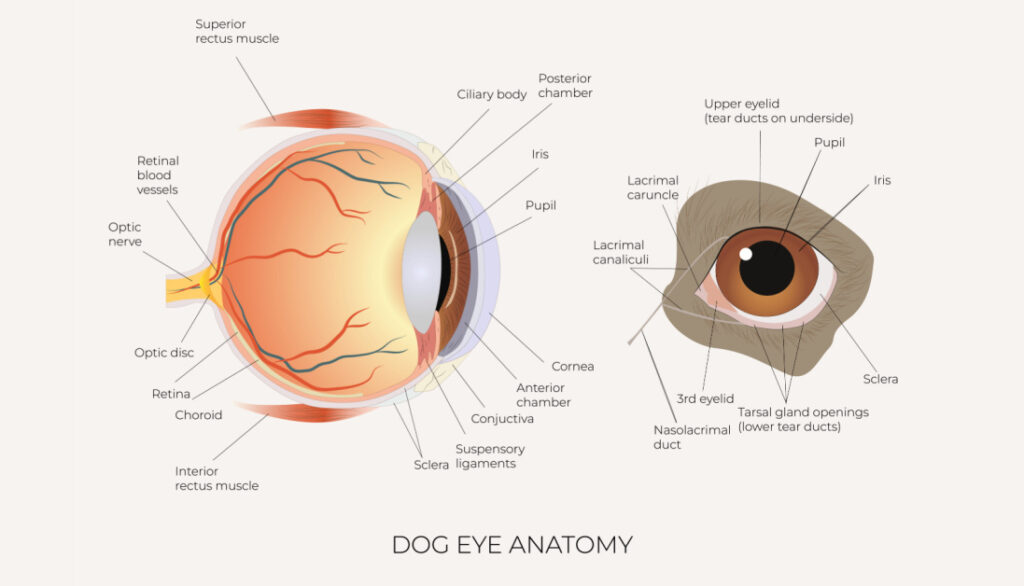
Common Eye Issues in Belgian Sheepdog
As a veterinarian, I often come across various Belgian Sheepdog eye health issues. This breed is prone to some specific eye problems that every Belgian Sheepdog parent should be aware of. Being vigilant about these conditions can help in early detection and treatment, ensuring your furry friend’s overall well-being.
Cataracts are one of the most common eye diseases in Belgian Sheepdogs. This condition causes a cloudy or opaque area in the normally clear lens of the eye, which can potentially lead to impaired vision or even blindness. While cataracts can be genetic, they can also develop due to old age or diabetes.
Progressive Retinal Atrophy (PRA) is another common eye problem. PRA is a group of genetic diseases that cause the retina’s photoreceptor cells to deteriorate over time, leading to vision loss. These diseases are particularly prevalent in Belgian Sheepdogs.
Glaucoma, an increased pressure in the eye that can lead to blindness if left untreated, is also seen in this breed. Glaucoma can be primary, meaning it’s hereditary, or secondary, resulting from other eye diseases like uveitis or advanced cataracts.
Lastly, Belgian Sheepdogs can also suffer from dry eye or Keratoconjunctivitis Sicca (KCS). This condition occurs when the dog’s eye doesn’t produce enough tears, leading to itchy, red, and painful eyes.
- Cataracts: Cloudy or opaque areas in the lens
- Progressive Retinal Atrophy (PRA): Deterioration of the retina’s photoreceptor cells
- Glaucoma: Increased pressure in the eye, leading to potential blindness
- Dry eye (KCS): Insufficient tear production, causing itchy, red, and painful eyes
Early detection and treatment of these Belgian Sheepdog eye health issues can significantly improve your dog’s quality of life. Regular veterinary check-ups, including comprehensive eye exams, are crucial in maintaining your Belgian Sheepdog’s vision health. Remember, your dog’s eyes are a window to their overall health, and keeping them healthy is a vital part of pet care.
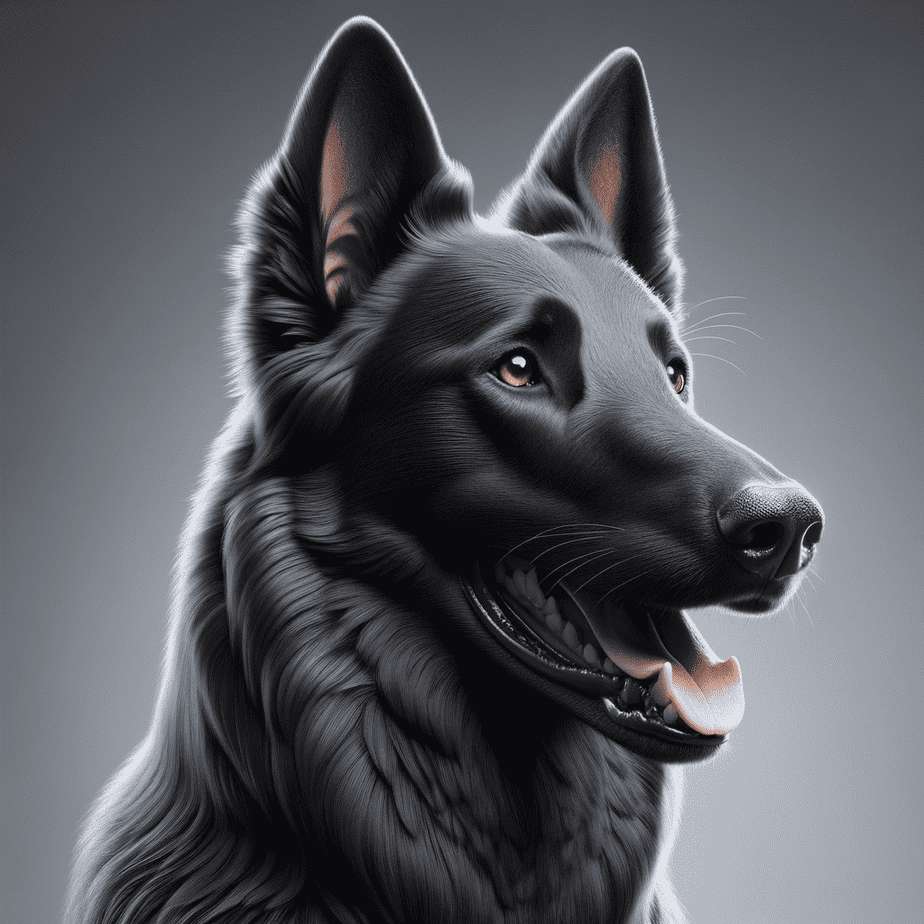
Prevention of Eye Problems
Ensuring your Belgian Sheepdog gets the right nutrients for optimal eye health is essential for maintaining clear vision and preventing age-related issues. Natural, nutrient-rich foods and supplements can play a key role in supporting their eyesight. From vitamin A-packed freeze-dried liver treats to antioxidant-rich blueberries and targeted supplements like Eyeplex by Standard Process, there are several ways to nourish your dog’s eyes. In this section, we’ll explore how these powerful ingredients contribute to long-term vision health and overall well-being.
Eyeplex by Standard Process
Eyeplex by Standard Process is a specialized supplement designed to support your Belgian Sheepdog’s eye health with a blend of essential nutrients. Formulated with key vitamins, minerals, and antioxidants, Eyeplex helps protect against oxidative stress, supports retinal function, and promotes overall vision health. Ingredients like vitamin A, vitamin C, and zinc contribute to maintaining strong eyesight, while whole food ingredients provide additional phytonutrients for cellular protection. Adding Eyeplex to your Belgian Sheepdog’s diet can be especially beneficial for aging dogs or breeds prone to eye conditions, offering targeted nutritional support to keep their vision sharp and healthy for years to come.
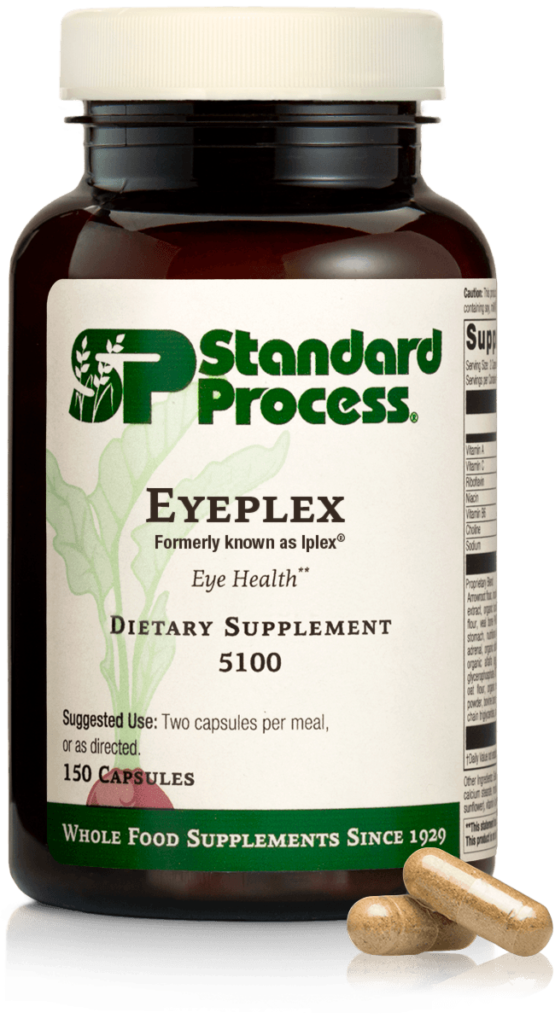
Freeze-Dried Blueberries
Freeze-dried blueberries are a powerhouse of antioxidants that can help protect your Belgian Sheepdog’s eyes from oxidative stress and age-related damage. Rich in vitamins C and E, as well as anthocyanins, these tiny but mighty berries help combat free radicals that can contribute to eye diseases like cataracts and macular degeneration. Incorporating freeze-dried blueberries into your dog’s diet provides a natural and delicious way to support retinal health, reduce inflammation, and promote overall vision longevity. Plus, they’re a low-calorie, dog-friendly treat that makes a great addition to a balanced diet for long-term eye health.
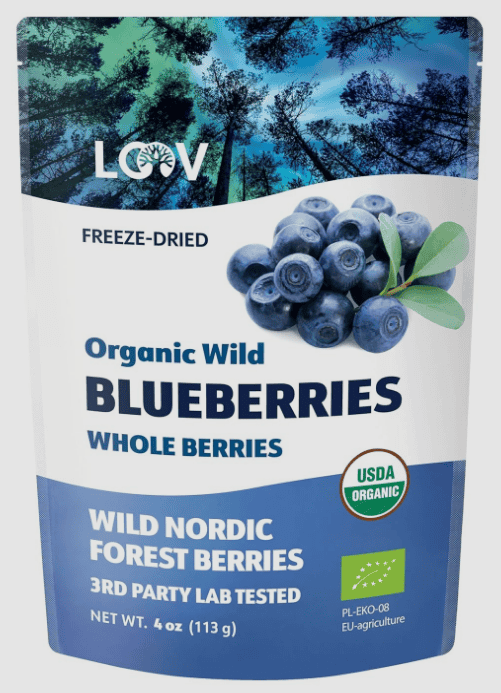
Freeze-Dried Liver
Freeze-dried liver treats are an excellent natural source of vitamin A, an essential nutrient for your Belgian Sheepdog’s eye health. Vitamin A plays a crucial role in maintaining good vision, especially in low-light conditions, while also supporting overall immune function and skin health. Since liver is rich in bioavailable vitamin A, incorporating freeze-dried liver treats into your dog’s diet provides a convenient and nutritious way to promote optimal eye function. Just be sure to feed them in moderation, as excessive vitamin A can lead to toxicity. Adding these nutrient-packed treats to your pup’s routine is a simple, tasty way to support their long-term vision and well-being!
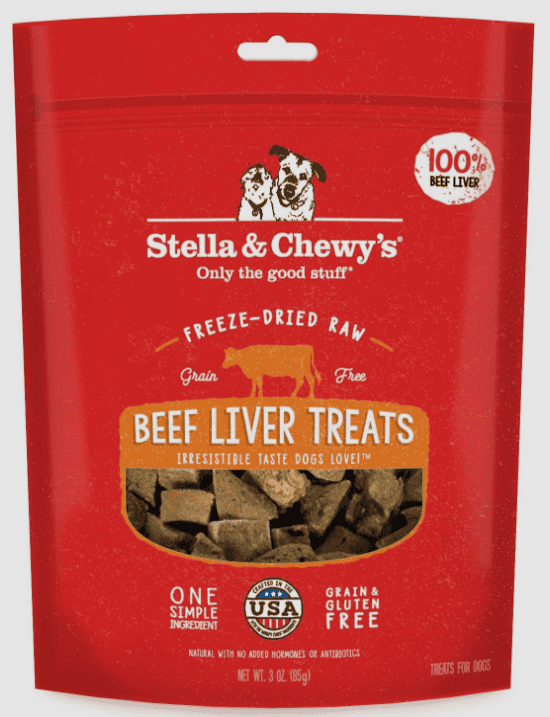
By prioritizing your Belgian Sheepdog’s eye health through a balanced diet and nutritional supplements, you can help prevent many common eye issues. These simple steps can go a long way in ensuring your pup’s eyes stay healthy and clear for years to come.problems. This proactive approach to Belgian Sheepdog eye health will help keep your furry friend’s eyes bright and healthy.
Environmental Hygiene To Reduce Eye Problems
Ensuring a clean environment for your Belgian Sheepdog is crucial in maintaining their eye health. Environmental hygiene is often overlooked, but it plays a significant role in preventing eye issues. Here are a few tips on how to keep your environment clean and safe for your Belgian Sheepdog’s eyes.
Indoor Air Quality
Indoor air quality can greatly impact your Belgian Sheepdog’s eye health. Dust, dander, and other airborne particles can irritate their eyes, leading to discomfort and potential eye problems. Therefore, it’s essential to keep the air in your home clean. Regularly use an air purifier, especially if you live in a city with high air pollution. Also, keep your home well-ventilated. Open windows when the weather permits and use fans to circulate the air. Regular vacuuming can also help reduce dust and dander.
Sprays, Diffusers, Candles, Incense
Many of us love using sprays, diffusers, candles, and incense to keep our homes smelling fresh. However, these can be harmful to your Belgian Sheepdog’s eyes. The chemicals and artificial fragrances in these products can cause eye irritation and allergies. If you notice your dog frequently rubbing their eyes or showing signs of discomfort after you’ve used these products, it might be best to stop using them.
Instead, opt for natural alternatives like essential oils. However, be sure to research which essential oils are safe for dogs as some can be toxic. Also, always use them in a well-ventilated area and keep them out of your dog’s reach.
Remember, your Belgian Sheepdog’s eyes are sensitive, and what might seem harmless to us could cause them discomfort. Being mindful of these factors can greatly improve your Belgian Sheepdog’s eye health and prevent potential eye problems. After all, prevention is always better than cure.
When it comes to Belgian Sheepdog Eye Health, environmental hygiene is a key factor. By keeping your home clean and free of potential irritants, you can help ensure your Belgian Sheepdog’s eyes stay healthy and bright.

Routine Belgian Sheepdog Eye Care & Maintenance
When it comes to maintaining your Belgian Sheepdog’s eye health, there are several daily and weekly practices you can incorporate into your care routine. Doing so will not only ensure the comfort of your furry friend but can also help in preventing the onset of certain eye conditions.
Daily & Weekly Care & Maintenance
Firstly, it’s important to regularly check your Belgian Sheepdog’s eyes for any signs of redness, swelling, or discharge. These could be indications of an underlying eye problem that requires immediate attention. If you notice your dog squinting or constantly rubbing its eyes, it may be time for a vet visit.
Another key part of maintaining your Belgian Sheepdog’s eye health is by regularly cleaning the area around its eyes. This can be done using a soft, clean cloth or specially designed dog eye wipes to gently wipe away any dirt or discharge. Be sure to avoid contact with the eye itself to prevent irritation. This should be done daily, or as needed, depending on your dog’s needs.
As part of their weekly maintenance, it’s crucial to trim the hair around their eyes. Long hair can irritate the eyes and lead to infections. Always use blunt-nosed scissors and be extremely careful not to hurt your dog in the process. If you’re uncomfortable doing this yourself, a professional groomer can take care of it for you.
Monitor hair length, nail length, bath frequency
Keeping an eye on your Belgian Sheepdog’s overall hygiene can also contribute to their eye health. Long nails can lead to accidental scratches and injuries to the eyes. Regular nail trimming is essential, and again, if you’re unsure about doing it yourself, seek professional assistance.
Bathing your Belgian Sheepdog too frequently can dry out their skin and hair, including the hair around their eyes, which can lead to irritation. On the other hand, not bathing them enough can result in a build-up of dirt and bacteria which can also cause eye problems. Finding a balance is key, and your vet can provide advice on the best bathing frequency for your dog.
In summary, maintaining your Belgian Sheepdog’s eye health requires regular care and attention. By incorporating these practices into your routine, you can help keep your dog’s eyes healthy and prevent potential eye problems. Always remember, if you notice any changes in your dog’s eyes or behavior, seek veterinary advice immediately.
Frequently Asked Questions
1. What are common eye health conditions in Belgian Sheepdogs?
Common eye health conditions in Belgian Sheepdogs include progressive retinal atrophy (PRA), cataracts, and glaucoma.
2. How can I identify if my Belgian Sheepdog has an eye health problem?
Signs of eye health problems in Belgian Sheepdogs may include redness, excessive tearing, cloudiness or opacity in the eyes, squinting, or changes in vision. If you notice any of these symptoms, it is important to consult a veterinarian.
3. Can eye health conditions in Belgian Sheepdogs be treated?
The treatment options for eye health conditions in Belgian Sheepdogs depend on the specific condition. Some conditions may be managed with medication or eye drops, while others may require surgical intervention. It is best to consult with a veterinarian for an accurate diagnosis and appropriate treatment plan.
4. How can I prevent eye health problems in my Belgian Sheepdog?
While not all eye health problems can be prevented, there are some measures you can take to promote good eye health in your Belgian Sheepdog. Regular veterinary check-ups, maintaining proper hygiene around the eyes, protecting your dog’s eyes from injury, and feeding a balanced diet with essential nutrients can all contribute to maintaining healthy eyes.
5. When should I seek veterinary care for my Belgian Sheepdog’s eye issues?
If you notice any changes in your Belgian Sheepdog’s eyes, such as redness, swelling, discharge, or if your dog is showing signs of discomfort or vision problems, it is recommended to seek veterinary care as soon as possible. Early detection and treatment can help prevent further complications.
